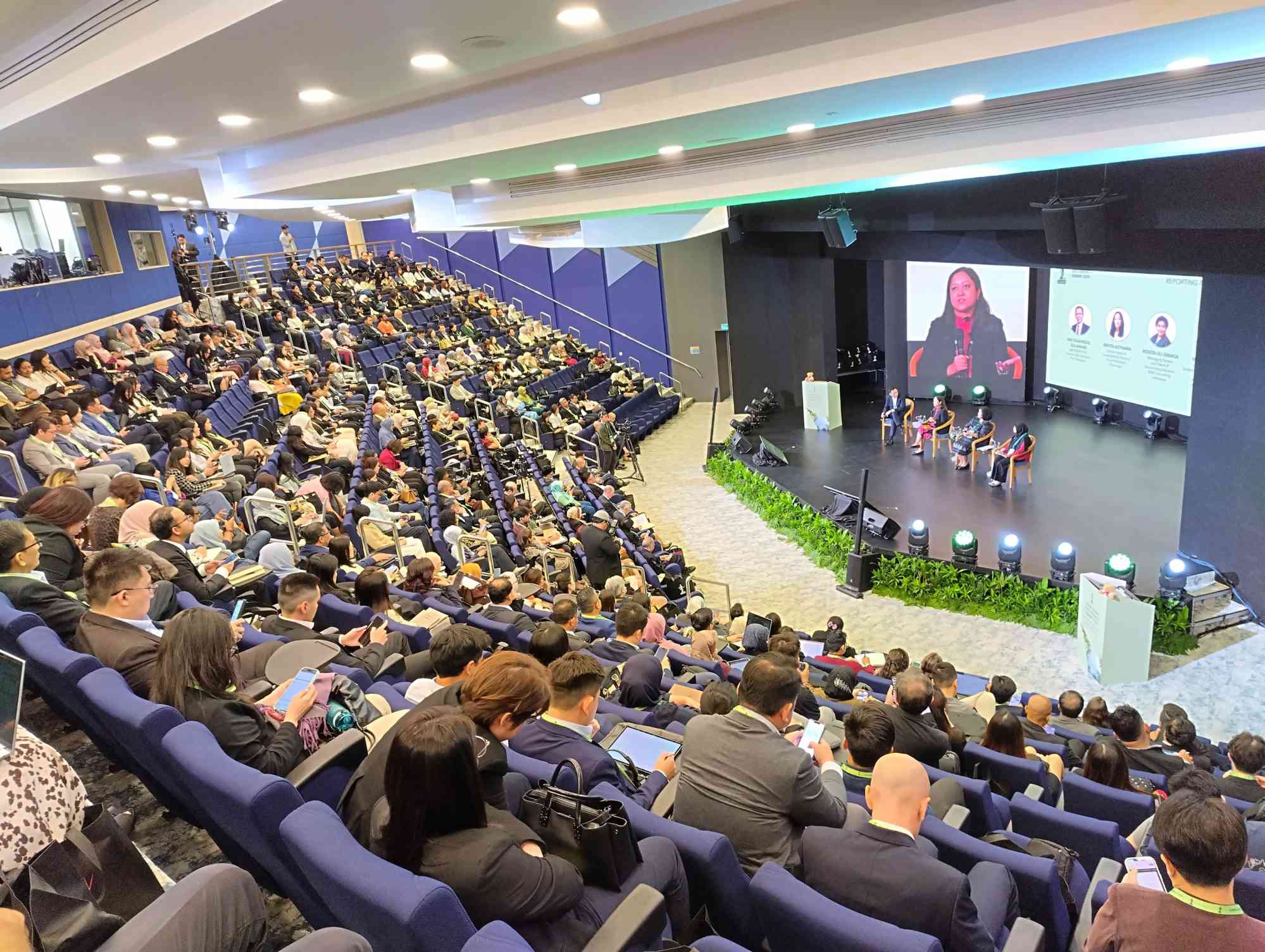ASEAN Moves from Ambition to Action at ICAEW Sustainability Summit
ASEAN’s journey toward net zero entered a decisive new chapter as policymakers, regulators, and finance leaders gathered at the inaugural ICAEW ASEAN Sustainability Summit 2025, held at the Securities Commission Malaysia.
Guided by the theme “ASEAN Rising: The Net Zero Playbook,” the one-day hybrid summit convened more than 600 in-person delegates and about 500 virtual participants from across the globe to translate sustainability pledges into actionable strategies that balance growth, inclusivity, and accountability.
Driving regional leadership and ethical transformation
Speaking at the Summit, Alan Vallance, Chief Executive of ICAEW, underlined that the accountancy profession sits at the heart of sustainability transformation, bridging ethics, transparency and financial integrity with real-world impact.
“Achieving a just and inclusive transition to net zero will require collaboration across borders, sectors and generations,” Vallance said. “The ASEAN region has a critical role to play in building the global baseline for sustainability reporting and assurance, and ICAEW is proud to help connect these conversations.”
Vallance highlighted how accountants and finance professionals can drive meaningful change through their role as trusted stewards of both financial and non-financial information.
“As finance professionals, we hold the data, insights and trust that underpin financial decisions,” he said. “To turn ambition into action, we must use that influence to shape ethical choices and create long-term value for people, business and the planet.”
He noted that ICAEW’s ongoing collaborations, including workshops with the Securities Commission Malaysia and the ASEAN Capital Markets Forum on the implementation of the IFRS Sustainability Disclosure Standards (S1 and S2), demonstrate how the profession can advance a shared regional framework for credible reporting and assurance.
Datuk Johan Mahmood Merican, Secretary General of Treasury at the Ministry of Finance Malaysia, whose speech was delivered by Dato Faiz Azmi, Executive Chairman of Securities Commission Malaysia, reaffirmed that sustainability is central to Malaysia’s national economic vision under the Madani Economy Framework.
“For Malaysia, sustainability is not a separate policy pillar but the foundation of our economic strategy,” he said. “Through fiscal reforms, carbon pricing and green budgeting, we are aligning investment, innovation and inclusivity to create long-term resilience. Achieving net zero must go hand-in-hand with growth that uplifts every segment of society.”
He highlighted that Malaysia remains committed to achieving net-zero carbon emissions by 2050, supported by the National Energy Transition Roadmap, the forthcoming Climate Change Bill, and the introduction of a carbon tax next year targeting key emission-intensive sectors such as iron, steel and energy.
“ASEAN’s transition to net zero is both an environmental necessity and an economic opportunity,” he added. “By harmonising sustainability standards, mobilising capital and strengthening regional collaboration, we can position ASEAN as a competitive and credible player in the global value chain.”
Collaboration and capacity building for a shared future
Elaine Hong, ICAEW Director for Southeast Asia, said the Summit marked a milestone in connecting ASEAN’s sustainability priorities with global standards and networks.
“Southeast Asia is at the crossroads of sustainability transformation,” she said. “The conversations at this Summit show that our region’s transition to net zero cannot happen in silos. It demands alignment, trust and shared purpose. ICAEW will continue working closely with regulators, professional bodies and businesses to strengthen ASEAN’s voice on the global sustainability stage.”
Hong added that ICAEW’s initiatives such as the Sustainability Accelerator Programme and its Sustainability and Climate Change Community are helping to build capacity and accelerate regional adoption of best practice in carbon accounting, sustainability assurance, and scenario planning.
“By investing in people and practical skills, we can bridge the gap between global standards and local realities,” she said. “Our shared goal is not only compliance, but the capability to ensure that professionals across ASEAN have the expertise and confidence to lead this transition.”
Turning discussion into implementation
The Summit featured five thematic sessions including expert panellists from PETRONAS, HSBC Malaysia, KPMG Malaysia, PwC Malaysia, Deloitte Southeast Asia, City Developments Limited Singapore, Olam Agri, the Malaysian Institute of Accountants, and the University of Oxford, UK.
Topics ranged from Ethics and Sustainability to Accelerating Sustainability Reporting and Assurance, Green Financing, Climate Scenario Analysis, and From Number Cruncher to Value Creator — reflecting the multifaceted role of finance in sustainability transformation.
A Student–Practitioner Debate brought together young professionals and industry leaders to explore whether “Sustainability Should Cost Less or More,” while the COFAR (Coastal Flooding Adaptation and Resilience) Challenge, co-hosted by ICAEW and the Securities Commission Malaysia, showcased youth-driven innovation in climate adaptation.
The discussions underscored the importance of equipping professionals with the tools, assurance frameworks and cross-sector collaboration needed to ensure the region’s sustainability transition is both inclusive and implementable.
Collaboration as the catalyst for progress
The Summit concluded with a joint call from speakers and participants, to embed ethics, data quality, and transparency at the core of ASEAN’s sustainability frameworks. Both public and private sector representatives and echoed by Jean Bouquot, the President of the International Federation of Accountants (IFAC) in his closing remarks, agreed that strong governance, consistent disclosure, and regional capacity building are essential to unlocking sustainable finance and long-term resilience.
Vallance rounded off the event by reaffirming ICAEW’s role as a convenor and partner in supporting ASEAN’s sustainability ambition.
“ICAEW stands ready as a trusted partner in shaping ethical, transparent and impactful responses to sustainability challenges,” he said. “We look forward to working with governments, regulators and business to advance a collective net-zero agenda for ASEAN and beyond.”
– ENDS –







